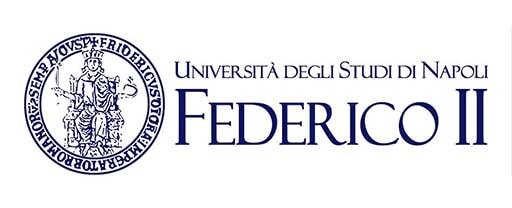
The PhD in Cardiovascular Pathophysiology and Therapeutics (CardioPath) is a PhD course incardiovascular pathophysiology and therapeutics, established in 2015.
The PhD in Cardiopath has its administrative seat at the University of Naples Federico II (CF 00876220633) represented by the Rector, Prof. Matteo Lorito; the course coordinator is Prof. Esposito Giovanni.
The PhD in "Cardiovascular Pathophysiology and Therapeutics" is a PhD in associated form with the University of Catanzaro and the University of Calabria.
The PhD programme in 'Cardiovascular Pathophysiology and Therapeutics' aims to provide a systematic understanding and advanced knowledge of the pathophysiological mechanisms underlying the main cardiovascular diseases and to explore the most innovative therapies in the cardiovascular field, in a structured from bench to bedside approach.
The training course lasts three years and is realised with the achievement of 180 ECTS (or CFU): 60 ECTS per year. The CFU are distributed in higher education courses, research/study, webinars, theses and supervised training and research activities chosen autonomously by the doctoral student after approval by the Academic Council, also considering the university's strategic planning.
The PhD programme in 'Cardiovascular Pathophysiology and Therapeutics' promotes internationalisation through the presence of prominent international board members. This means that the PhD programme offers the opportunity for students to collaborate and interact with world-renowned experts from different parts of the world, thus paving the way for new perspectives and knowledge. In addition, the inclusion of international members in the academic college can also lead to a greater diversity of cultures and ideas, creating a more stimulating and enriching learning environment for doctoral students.
CardioPath is a program of excellence:
a) The Academic Council is composed by outstanding members highly recognized for their contribute to science and dedication to teaching and knowledge transfer;
b) The CardioPaTh PhD is a highly selective program, requiring a high level of scientific preparation and expertise. Applicants must have a degree in medicine or related scientific disciplines, and demonstrate a strong interest and motivation.
c) The availability of expertise in different scientific fields and a variety of teaching methods offered by the Research Doctorate Network make possible broaden the spectrum of the scientific projects to be realized by the PhD candidates.
The curricular areas of the PhD programme are:
a) Heart failure, arrhythmias and hypertension.
b) Non-invasive imaging of cardio-vascular diseases;
c) Interventional cardiology;
At the end of the course PhD scholars are expected:
a) to be familiar with research tools (from bench to bedside)
b) to be able to conceive, design and perform a clinical and/or basic-science research project
d) to be able to further extend the available knowledge to improve current diagnostic and therapeutic protocols to cardiovascular diseases and to propose innovative approaches.
For this purpose, the training course is based on the following scheme:
1) didactic training to provide the cultural foundations necessary for the research activities,
2) experimental work in the laboratory or in a clinical setting under the supervision of a Tutor,
3) training rotations in the partner institutions.
Latest News
41ˢᵗ cycle oral test results are now available
The 2025-2026 Lesson Calendar is now available!
41ˢᵗ cycle college members: read here
Training Program 41ˢᵗ cycle - read more

